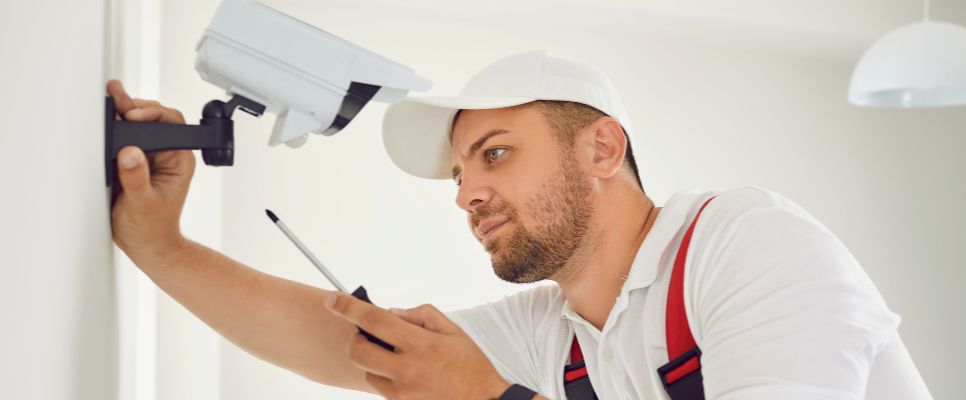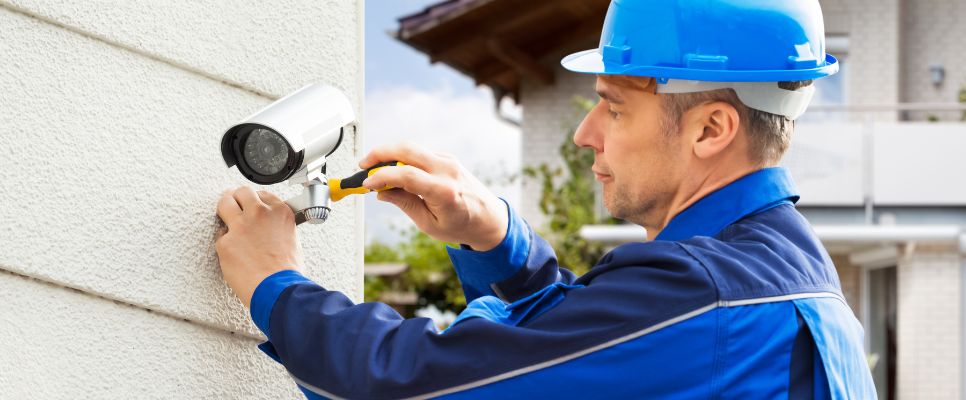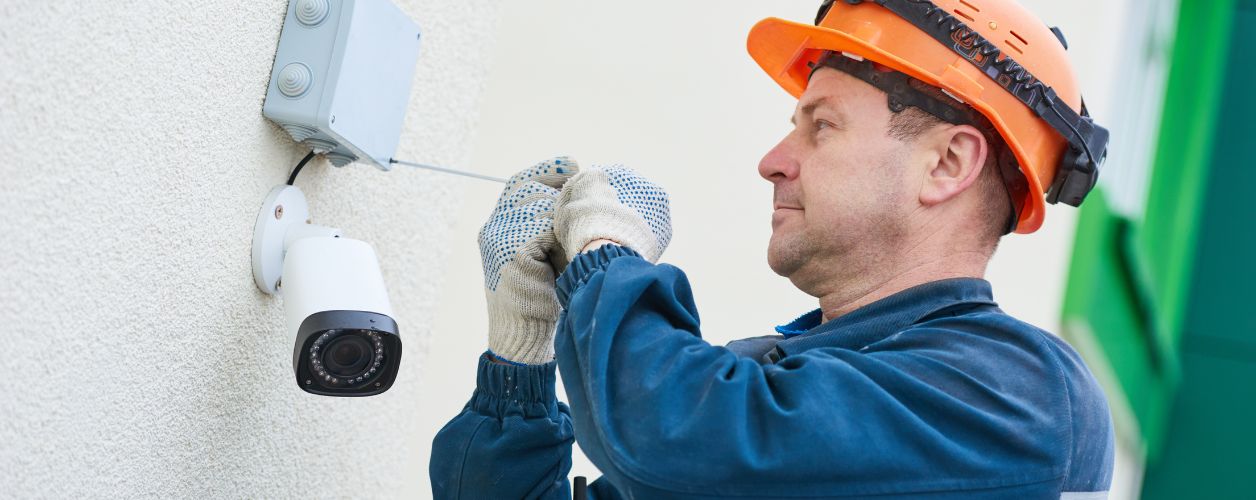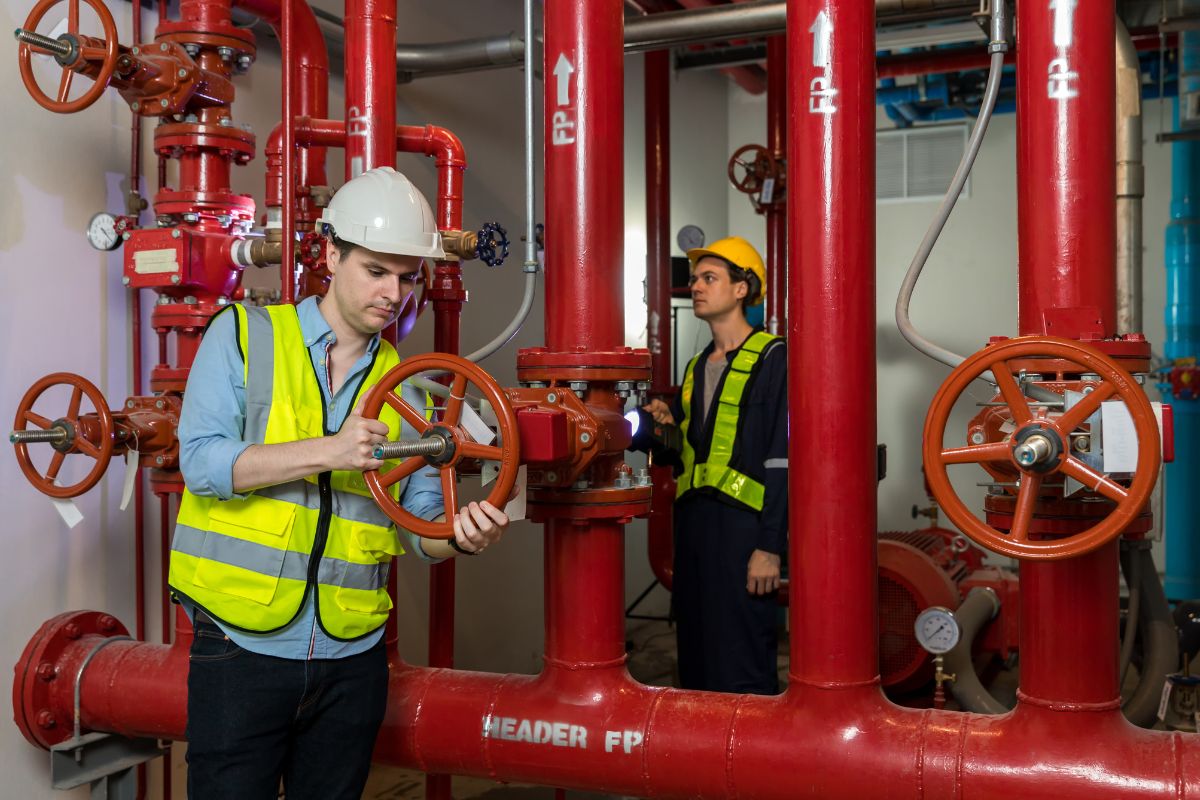How Much Does CCTV Installation Cost? A Comprehensive Price Guide
CCTV systems have become essential for upgrading security in homes and businesses, often used alongside other features like alarm systems and security doors for comprehensive protection. If you want to keep an eye on your house, company, or a public area, installing a CCTV system can give you peace of mind. It does this by threatening potential criminals and offering useful evidence when needed. The CCTV installation cost differs based on various things.
Knowing how much a CCTV installation will cost is essential for planning your budget and ensuring that you get the most out of your money. The charges can be decided depending on the number of CCTVs, the quality of the system, the difficulty of the installation, and where you are located. You can install anything from simple CCTV cameras to premium-grade CCTV systems, each with its own price range and features.
This cost guide will show you the factors affecting CCTV installation costs. You can make an informed decision after planning your CCTV installation and the typical price range for various systems.
What’s the Average Cost to Install CCTV Cameras?
Installing CCTV cameras can vary in terms of cost for different uses. It is affected by the type of system you want, the number of cameras you require and how complex the installation is. Here is a breakdown of what you might look for to spend on average:

1. Doing it Yourself with a CCTV System
- One Camera Only: $200 - $500
- Best For: Small locality or keeping an eye on a specific spot.
- A 4-Camera Kit: $500 - $1,500
- Best For: Pretty specific for average-sized homes or businesses. Usually, you'll get a few necessary cameras and a DVR/NVR to document everything.
- An 8-Camera Kit: $1,000 - $2,500
- Best For: Larger properties or if you want some additional protection.
2. Getting a Pro for CCTV Installation
Hourly Rate: $50 - $100
Experts usually charge by the hour, and that rate can vary depending on their expertise and how difficult the installation procedure is.
Total installation with cameras and setup included:
- A small house setup will involve 2 to 4 cameras. Look forward to paying between $500 and $2,000.
- For a large home or business setup with 5 to 8 cameras. The cost varies from $2,000 to $5,000.
- For expensive or commercial installations ( for example, 10 or more cameras, or PTZ cameras). Rates start at $5,000 and can go over $10,000.
3. Extra charges to consider
- Ongoing Cloud Storage Fees: The monthly fee will range from $10 to $50.
- Wiring and Mounting Expenses: This costs $100 to $500 when the wiring or mounting is customised. It is also based on the arrangement of your property.
The economical choice is a DIY installation, which can be as cheap as $200 for one camera or before $1,500 for a set of 4 cameras.
For professional installation, the price will generally start from $500 for simple setups and can exceed $10,000 for larger or commercialised setups. The best idea is to collect quotes from different CCTV installers near you, and check out the quality of both the cameras and the installation work when you are preparing for this.
Factors that Influence CCTV Installation Costs
The cost of a CCTV installation can vary depending on various factors. Here’s what chiefly influences the price:
1. How Many Cameras Do You Need
First of all, the more cameras you get, the more it will cost you for the gear and installation. Larger homes or businesses often require a group of cameras to cover each area.
2. What Kind of Cameras do You Choose
- Analog or IP Cameras: IP cameras are the digital kind of cameras. These will cost you more than analog ones. The view given by them will give you keen images with more bells and whistles.
- Resolution: Cameras with high resolution will set you back more.
- Fixed or PTZ Cameras: PTZ cameras can pan, tilt and zoom. These are more costly because they do a lot more.
3. Wired or Wireless: What's the Difference?
- Wired Systems: These will need a bit more work on the installation front since they need wires, but they are like the genuine old friend you can always trust.
- Wireless Systems: You might require a super solid network to make them glare.
4. Where to Store Your Footage: Local or Cloud?
You can save your recordings locally on a device like a DVR or NVR, or you can utilize cloud storage. The option you chose will influence the total price. The more space you need to stock footage( image anywhere from 2 TB to a huge 10 TB), the more it is going to cost you.
5. Installation: How Tricky Will It Be?
If your building has multiple floors, difficult spots that are hard to get to, or walls made of concrete, the setup will take longer and could cost more. Placing cameras inside is different from placing them outside. Outdoor cameras need to be firm enough to tackle the weather and destruction.
Tips for Saving Money on CCTV Camera Installation
The given tips will help you save some cash:
1. Pick the System That Suits Your Needs and Wallet
- Wired or Wireless: Wireless can reduce the installation costs because you will not need to deal with a collection of cables.
- Analog vs. IP Cameras: Analog cameras are uncomplicated on the budget at first, but the new bells and whistles of newer models will not be available.
2. Consider installing it yourself
You will find many systems out there designed for easy, do-it-yourself installation. If you are comfortable with a screwdriver and do not mind some basic wiring. You could even handle installing a wired system on your own and save the money instead of spending it on a professional.
3. Go for a CCTV Bundle Rather Than Separate Pieces
Catching a pre-made security camera package is generally a better deal than buying cameras, a recorder, and all the bells and whistles separately.
4. Focus on the Must-Have Features
You can pass on fancy accessories like PTZ or super high-resolution cameras, except for your situation.
5. Compare CCTV Installer Quotes
It is good to get at least three quotes from various professional installers to ensure you are receiving the best rate.
DIY Vs. Professional Installation – Pros and Cons
Are you thinking about installing your CCTV system yourself or hiring a professional? It is a big choice! Given are some things to think about: Cost, how difficult the step is, and how trustworthy you want it to be. Let’s have a look at the good and bad of both the options:
Setting Up Your CCTV System Yourself
What's Great About It
- Saves You Money: You do not need to pay someone to install it, which can put a lot of extra cash back in your pocket.
- Do It on Your Time: You can adjust your time and set it accordingly without having to wait for someone else’s schedule.
- Tailor It to Your Needs: You can decide on where the cameras should be placed and how you can set everything based on what you want to safeguard.
- No Secret Extra Costs: You do not have to worry about paying extra charges for someone to come out, signing up for a maintenance plan, or paying for hidden service charges.
Downsides
- You'll need some electrical skills: To set up this will need knowledge of wiring, where the camera should be placed to work effectively, and how to shape a network.
- It can eat up a lot of your time: If several cameras are wired, then it can easily take several hours or even days.
- Room for errors: If the position of the cameras is poor, the wires are not connected correctly. There are network issues, your security could be compromised.
- You're mostly on your own for help: If something stops working, you will be liable for figuring out the problem.
DIY installation is a good fit for small homes, as it is a cost-effective way to boost the security of your home. It's a basic but effective solution for Small businesses with simple security requirements.
Getting Your CCTV System Professionally Installed
Why is it a good idea?
- They know what they're doing: Professionals are experts in installing cameras and pointing them just right, so that the whole system works together well.
- Super fast and easy: You can get the complete system setup and running in just a few hours.
- More reliable and secure: You are less likely to face any technical issues, installing cameras in the wrong place.
- Stays within the law: Licensed installers ensure your business CCTV setup follows all the rules.
- Peace of mind with support: A lot of companies will help you with maintenance and any problems that occur.
Things to keep in mind:
- It can be costly, and the labour costs can differ from $300 to $2,000 or more.
- You need to book an appointment to work around their timetable.
- There can be extra charges for maintenance, call-outs, or special characteristics.
Comparing DIY and Professional Installation Costs in Australia
Aspect |
DIY Installation |
Professional Installation |
|---|
Equipment Expenses |
Between $200 and $2,000 $500 to over , depending on the brand. |
$5,000(package deals may be available) |
Labour Expenses |
$0 |
$300 to over $2,000 |
Time Investment |
A few hours to several days |
Only a few hours |
Skill Proficiency |
Moderate to high |
None (experts take care of it) |
Continued Support |
Limited support |
Support is provided |
Most Suitable For |
Budget-conscious users Businesses, and extensive and tech-savvy |
properties, or those preferring a hassle-free setup |
How to Pick a Local CCTV Provider?
Selection of a local CCTV provider to guarantee a perfect quality, trustworthy, and legally flexible security system may require careful attention. Follow this step-by step guide to choose the ideal provider.

1. Verify Licensing & Accreditation
- Own a valid security license verified by the state's police or licensing authority.
- Be a member of ASIAL(Australian Security Industry Association Limited)
- Follows the privacy laws and data safety rules concerning CCTV installations.
Where can you confirm this information?
- NSW: NSW Police Force
- VIC: Victoria Police Licensing & Regulation
- QLD: Office of Fair Trading
2. Figure Out What Customers Are Saying
Here's how to find out:
- Google Reviews & Facebook Ratings: Look for providers with ratings of 4 stars and above. A 4 and above star rating shows that people are happy with their services.
- ProductReview.com.au: This site is gold for true, fresh customer feedback. You can check here what users have to say about their observations.
- Word of Mouth: Ask your friends, neighbours, or even local businesses, who can give you the best information and any recommendations.
Watch Out For These Red Flags:
- Multiple Complaints: If you see a group of people making a complaint about careless installations, imperfect customer service after the sale, or unreliable products.
- No Reviews or Low Ratings: A low star rating is a significant signal red flag. It might mean they are new or not very fine.
3. Shop Around & Grab a Few Quotes
Collect some good quotes from at least three various security suppliers.
- Itemized Quote: Ask for a detailed breakdown of the charges. This involves the cameras themselves, the installation, and any current expenses you will be trapped in.
- No Tricky Fees: Ensure that there are no hidden charges in a secret way (such as add-ons for cloud storage or maintenance)
- Bundle Deals: Check if they are providing you with any deductions for buying multiple services, like a camera system and an alarm system together.
Conclusion
Installing a CCTV system is a smart investment in safety, but the cost can vary widely depending on the system type, number of cameras, and installation complexity. Whether you opt for a budget-friendly DIY setup or a professionally installed solution, it's crucial to understand your needs and compare quotes from trusted CCTV Installers. By focusing on essential features and planning for a complete safety ecosystem, you can enhance your property's security without overspending.
A truly comprehensive safety plan goes beyond just surveillance. To achieve total peace of mind, consider complementing your security cameras by engaging professional Fire Alarm Installers to protect against other critical threats. By choosing certified Security System Installers for all aspects of your property's protection, you ensure every component works together seamlessly. This integrated approach makes every dollar count towards long-term safety and the ultimate protection of your home or business.









